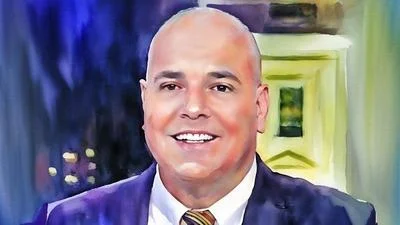In Fool’s Gold, Susan Crabtree pulls back the curtain on California’s deepening entanglement with Chinese political and economic interests.
Her investigation reveals how permissive state policies, cozy business ties, and ideological exports have created an open door for Chinese influence. What began as naïve optimism about liberalizing China through trade has, in Crabtree’s eyes, metastasized into a dangerous vulnerability with national repercussions.
Crabtree is a national political correspondent for RealClearPolitics and a 2024 recipient of the Dow Prize for Investigative Journalism. She developed a love of reading and journalism from her mother, a teacher who once dreamed of being a reporter herself.
Raised in a military household—her father a Vietnam-era Air Force pilot—she grew up with a strong anti-communist sentiment and a respect for civic engagement. “Reading the newspaper was always a conversation piece in our household,” she says.
After high school in Southern California, Crabtree pursued journalism at USC, launching a career that spans The Washington Times, the Washington Examiner, and the Washington Free Beacon.
Early in her career, Crabtree covered Capitol Hill in the 1990s during the debate over granting China permanent normal trade relations. “There was this belief that opening up China’s economy would bring about greater democracy,” she recalls. “But that argument didn’t really play out… it was sort of a naive process on our part.”
Today, Crabtree focuses on the intersection of Chinese influence and California politics. In her new book Fool’s Gold, co-authored with Jed McPhatter of Peter Schweizer’s research group, Crabtree investigates how California has become a gateway for Chinese political and economic interests. She says the inspiration came during COVID-19, when she saw Californians subjected to some of the nation’s harshest lockdowns and a “completely dysfunctional” unemployment system. “Churches were locked down while liquor stores stayed open. Hollywood got carve-outs, but working-class people couldn’t get their benefits,” she says.
One incident stands out: Newsom's nearly $1 billion deal with Chinese company BYD for personal protective equipment. “The quality was poor, they missed deadlines, and he wouldn’t even disclose the contract details at first,” Crabtree says.
She also notes Newsom’s use of TikTok for public service announcements during the pandemic, calling it “a strange choice” given the platform’s ties to the Chinese Communist Party. “We were using a Chinese-owned surveillance app to keep Californians locked down.”
The governor’s nonprofit initiative, ChinaSF, brings over 100 Chinese companies into California while offering little in return. “It flung open the Golden Gates to Chinese interests,” she says.
Fool’s Gold argues that California’s permissiveness has national implications. “What happens in California doesn’t stay in California,” Crabtree warns. She details how progressive ideologies, electric vehicle mandates, and climate lawsuits backed by the state’s attorney general Rob Bonta are being exported to other parts of the U.S.
Crabtree believes China remains the central foreign policy challenge for America, especially as more attention is paid to forced labor and surveillance. She sees Donald Trump’s continuation of tariffs and Biden’s enforcement of some of those measures as a turning point. “President Xi is boxed in,” she says. “He’s acting with impunity, especially when it comes to denying the persecution of Uyghurs. Meanwhile, American companies like Nike and Calvin Klein are benefiting from that labor.”
Crabtree notes the recent collapse of a rumored TikTok acquisition by Jeff Bezos as another sign of shifting tides. “People are waking up,” she says. “Confronting China is good for human rights, good for the U.S., and good for rebuilding our manufacturing base.”
Her reporting and writing provide a paper trail. “San Francisco used to be the symbol of opportunity–now it’s a case study in capitulation,” she says.









